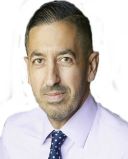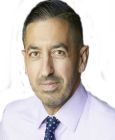Health
3 Steps to a Healthier World
How we can help secure a healthier future.
Posted June 29, 2021 Reviewed by Abigail Fagan
Key points
- A sense of security about one's place and purpose in the world contributes to public health.
- Have access to resources that allow people to feel physically and financially secure is critical to improving public health.
- Creating a compassionate society and eliminating practices of marginalization could also enhance public health.
I have written previously about the aspirations of public health, seeing public health more as a journey, a path on which we should always be traveling, towards creating a better and healthier world, rather than as any specific set of actions prescribed by narrow strategies. The challenge in that vision is that it risks being too broad, too all-encompassing. It then often falls on us to ask: What matters most? What should we be acting on to best advance our aspirations?
I was recently reflecting on these questions by thinking about parallel universes, which, in my disciplinary home, epidemiology, we call counterfactuals. These counterfactuals allow us to model how the introduction of a given variable might shape health. We do so by comparing a real world where someone may, say, smoke, with a counterfactual universe where that same person, with everything else held exactly the same, does not smoke. This allows us to compare counterfactual universes where all is the same except for that one variable, whereupon we can then conclude that if the person we are observing gets lung cancer in the universe where she smokes—and avoids it in the universe where she does not—we might say with some confidence that smoking causes lung cancer.
So, now let us run another counterfactual experiment. Imagine two identical people living in universes that are the same save for one key detail, a detail core to the ability to live a healthy life: In one universe, the person is secure in her place in the natural order of things, whereas in the other she is not. By secure in the natural order of things, I mean possessing enough socioeconomic advantage to know, in her heart of hearts, that no matter how bad life gets, she will ultimately be OK. This security means the difference, for example, between sudden illness being a mere hardship and being a calamity. Or between the loss of a few thousand dollars being a temporary setback and being an extinction-level event for her quality of life.
This security can come from many places. Perhaps it comes from wealth, which can serve as a buffer against catastrophe. Perhaps it comes from family connections, or skin color. Feeling supported by the natural order, rather than at odds with it, is a complex, often intangible good. I would argue that it is almost invariably reflected in the long-term trajectory of one’s life. It changes everything. Knowing that one has an assured place in the natural order of things means that one is more willing to take risks, to venture ideas, to travel, to speak truth to power, to take actions that require deeply internalized conviction. Ultimately, such actions amount to a fully realized life and the sense of well-being such a life supports, a sense which is necessary for health. We can imagine, then, how much healthier our experiments’ subject likely is, in the universe where she feels secure in the natural order of things.
It strikes me, then, that if we want to create a healthy world, it must be a world where feeling secure in the natural order is not a privilege enjoyed by the few, but a right claimed by everyone. This is reinforced when we reflect that it echoes a famous thought experiment developed by the philosopher John Rawls—particularly timely, as 2021 is the centenary of Rawls’ birth—in which we are asked to design a new society.
The key point is that, while we are free to design this society, we are not allowed to know in advance what place in the order of things we will occupy. We could be in a position of privilege or we could be at the bottom of the socioeconomic ladder. There is no way for us to know. Rawls called this position of incomplete knowledge the Veil of Ignorance. Because we are designing our society from behind this veil, it behooves us to build a world that is as equal as possible, where everyone is secure in their place in the natural order.
How might we go about doing this in the world we have? How can we move towards this aspiration?
Broadly speaking, I would argue we need to take three steps.
First, we need to ensure that people all have access to the resources that can allow them to feel secure—physically and financially—in the natural order of things. There are a number of ways to go about this, but ambitious federal investment, of the type seen in the recent American Rescue Plan, strikes me as the necessary condition for all of them. We can have conversations about the trajectory of spending—which proportion should go directly to individuals and which should be used to support community investment, the social safety net, and other public goods—but no matter where the money goes, it should mark a paradigm shift in federal investment, towards a bolder vision for providing Americans with material aid.
Second, we need to create a foundation of compassion, to support a world that protects rather than castigates its citizens. In talking about compassion, I mean compassion in the sense that Martin Luther King Jr. described it, when he said, “True compassion is more than flinging a coin to a beggar; it comes to see that an edifice which produces beggars needs restructuring.” Creating a world that lets everyone feel secure in their place in it requires changes at the structural level. Compassion helps us to see where these changes are necessary and motivates us to make them.
Finally, we need to end the practice of marginalizing people based on their identity. This means creating a world where everyone can thrive as individuals, regardless of sex, gender, skin color, or socioeconomic status.
This argues for a public health agenda, one that is centrally informed by inclusivity and compassion, which aims to help everyone feel secure in the natural order. Public health is organized around the universal aspiration of health, which we cannot achieve as long as we have parallel universes where some people feel they are on sure footing in our society while others do not. Fundamentally, being secure in our world must lie at the heart of our aspirations for health; it is on us to advocate for the conditions that make this so, for all.
This post also appears on Substack.




